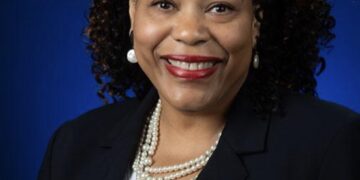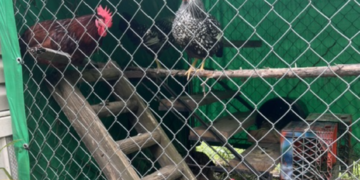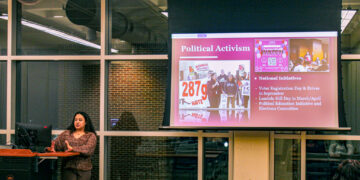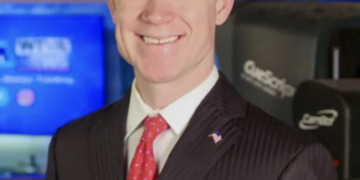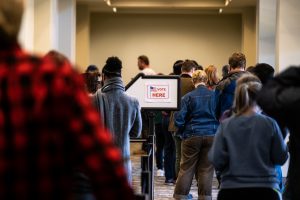
Many students at the University of Mississippi have noticed a lack of campus conversation about the upcoming general election.
“Unless (the election) affects you directly, or unless it’s right there on your TV, you don’t really care,” Khyndal Wilson, a senior integrated marketing communications major from Memphis, said. “If you’re drinking at the Library, you’re not thinking about Trump or Kamala or anything like that.”
However, Nadia Shah, a linguistics major who is also from Memphis, said that while some might not be talking about it, attention is still turned to the Nov. 5 vote.
“I haven’t seen many people talking about the election,” Shah said. “I don’t think it’s as campus-heavy, but I feel like it is on a lot of people’s minds.”
Regardless of party affiliation, students expressed that they are feeling the pressures of election day decision making, country-wide polarization and finding common ground.
Voting pressure
Some students said that they have been feeling the weight of their vote.
Charlotte Price, a sophomore political science major from Naples, Fla., is among the students who are experiencing election anxiety.
“It has put this big pit in my stomach because my parents expect me to vote, specifically for a certain candidate they like,” Price said. “(I’ve experienced) obsessive thoughts because I’ve been putting off sending in my absentee ballot, and I’ve been debating over and over again if I should or shouldn’t because I just don’t know who to vote for.”
Harry Respess, a junior finance major from Lookout Mountain, Ga., is not feeling as much anxiety, but he has noticed more importance placed on this election by his family and peers because he is a Georgia voter.
“I have definitely felt that there has been more of an inclination that I do need to get that done, because my vote matters a lot more in terms of the state that I’m (voting) in,” Respress said. “I have noticed that there has been such a resurgence of people getting involved with voting this year because of how important and how different the ideals are of each candidate.”
Others are more worried about voter turnout.
“I’m concerned that there will be a lack of people voting in general,” Lauren Cincurak, a sophomore communication sciences and disorders major and liberal voter from Hernando, Miss., said. “I was talking to my dad, and he said he might be the only person voting in our family. That’s really difficult to hear.
“From what my dad was talking about, he said there’s not going to be any change. Mississippi does not change. It is a red state,” Cincurak said.
Respress said he thinks much of the campus community will be voting conservative this election.
“In terms of the campus as a whole, there are a lot of people that are all following the same idea of, ‘Oh, we’re just gonna all vote for this one person,’” Respess said. “(It’s a) very southern, conservative school (and a) very conservative state. I think it’s turned that way.”
Political polarization
Some UM students are worried about national polarization and are concerned about the effect it might have on campus.
Will Embry, a freshman studies major from Water Valley, Miss., identifies himself as a conservative voter.
“You have to be a little bit concerned (about the election) based on the state of the country right now,” Embry said. “The tensions are running high.”
Some think that divisions are only increasing.
“My main concerns are that the country will only become more polarized. It’s going to be harder and harder to stay in the middle. Eventually, (I am) going to have to choose a side,” Jolie Trotti, a junior international studies major from Ocean Springs, Miss., said. Trotti identifies as an independent voter. Delaney McNear, a sophomore philosophy major and left-leaning voter from Chicago, shared Trotti’s concerns.
“Everything feels very heavily, heavily partisan, and there’s a crazy divide (between parties),” McNear said. “It just feels like in the last few years everything has become way more dramatized. Everything is so dramatic. Everything feels like a new headline, and it just makes me concerned going forward. It feels like we’re watching a play.”
Sophia Edwards, a sophomore political science major from Baton Rouge, La., said there has been a promotion of argumentation over conversation.
“I think that (the polarization of the country) is because of a lot of people promoting arguments instead of discussions,” Edwards said. “I am someone who believes that our political conversation should never be arguing. It should never be talking at each other. It should be discussion.”
Price Turner, a senior accounting major from Indianapolis, spoke about how political division has impacted him.
“I do sense a divide between left and right, and other people are being more radical about certain topics than others. I believe it is hurting our society and creating more separation than unity,” Turner said. “It has ruined friendships of mine before in 2020, and I just stay out of it for that reason because friendships should not be intervened by politics.”
However, Jefferson Wheeler, a junior criminal justice major from Southaven, Miss., said that experiences like Turner’s have been pushing people away from political conversations altogether.
“I feel like what we need more people doing is actually going out of their way and kind of voicing their opinion. However, I feel like when people voice their opinion, they’re more open to ridicule,” Wheeler said. “I just feel like people are kind of scared to argue.”
Finding common ground
Despite concerns about polarization, many students said that they have been learning how to find common ground.
Edwards said that when politics are brought into the discussion, he desires a conversation over an argument.
“It is easier to bridge (party) gaps in calmer settings. My main strategy with bridging the gap is to directly say I want this to be a discussion not an argument,” Edwards said. “I do not want us to yell at each other. It really does help because now that person knows that they do not have to defend themselves. I am going to listen to you.”
Similarly, Benjamin Harrison, a freshman marketing major from St. Louis, believes that people on both sides have their own opinions, and he has already found common ground with members of his own family.
“For the people that I have talked to that are left, I do not mind whether or not they are left. It is their opinion,” Harrison said. “I don’t really care about it. My sister is more left-leaning, and we have both found reasons why either candidate could be a good choice.”
Julie Wronski, a UM associate professor of political science with a specialization in political psychology, provided advice to those who have been impacted by feelings of polarization.
“Students can turn down the heat by not letting politics dominate their identity and by participating in activities with individuals that cross party lines,” Wronski said. “Having ties to people that transcend politics is key to not letting a single political identity dominate and define who you are.”
Wheeler said that this was his strategy.
“If you’re really into politics, your me time can be more focused on that personally, that’s not me,” Wheeler said. “I know it’s an important thing, but I feel like there are other things that are of equal importance to us.”
Uncertainty about the future
Many students commented on what they think will happen after the polls close and the vote is confirmed.
Wilson said that this vote will set a precedent.
“This is going to set the stage for the future. If we go back to Donald Trump — this is the archetype of a president that we’re going to want in the future,” Wilson said. “If Kamala wins, (she is) going to be the first female president.”
Shah said she feels intimidated.
“It’s getting harder and harder to make it in this world, but people are so hung up over what happened eight years ago that they’re not focused on where we’re at now,” Shah said. “We need to start looking toward the future and what it means for our kids and younger siblings.”
Respess said that he is simply curious.
“I’m just curious to see if it goes one way or the other,” Respress said. “How much different or similar things are going to be than people thought they were going to be.”
Claire Reynolds and Kharley Redmon contributed reporting.

